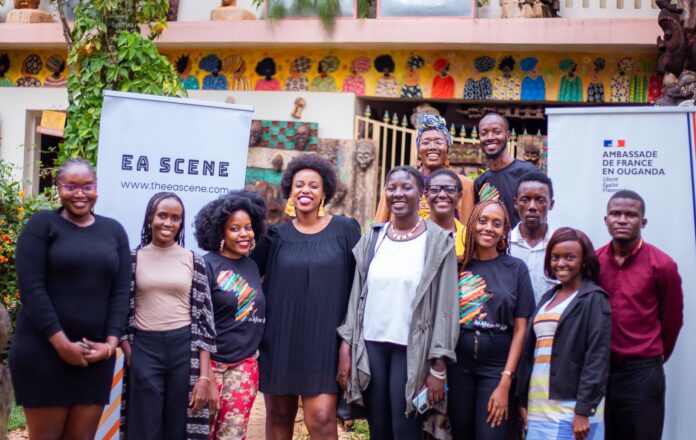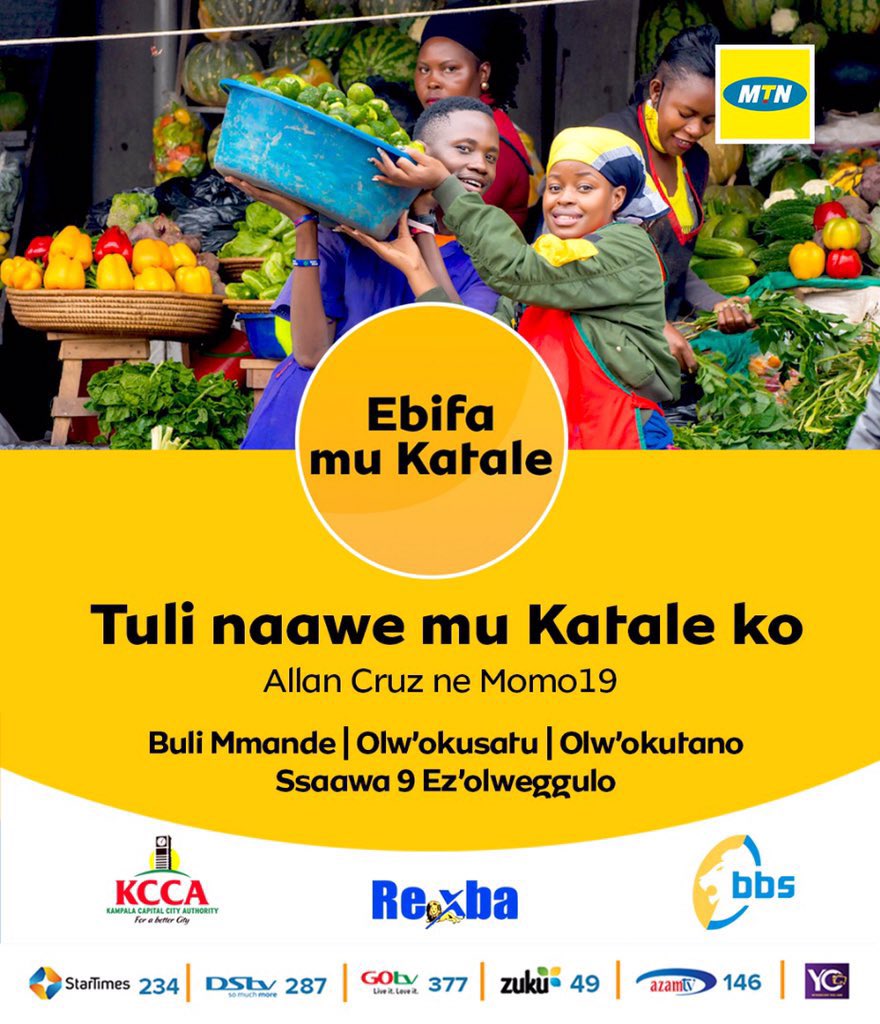Copyright, copyright law, and intellectual property are up there among the most widely misunderstood concepts.
To demystify this topic as a whole, the French Embassy in line with the FSPI culture project that looks to supporting Ugandan operators and the Ugandan Ministry in structuring the local cultural ecosystem” organized an expertise mission with the MECI (mission of international cultural expertise, attached to the French Ministry of Culture) held a one-week workshop; tackling the various topics as a way of empowering creatives this week while raising awareness of the issue of copyright among the cultural sector in the music, performing arts and film sectors.
Day one’s session as held at the Media Challenge Initiative Hub saw attendees be taught about intellectual rights and how it intersects with minorities in Africa and Blacks and Africans as a global minority.
You know how from time to time, there have been talks about how the West steals from African/ Black creatives and profits out of it without including the original creators. One such example that was cited was the case of “Mbube”, a recorded written and performed by South African singer Solomon Linda in 1939, which was later manipulated to birth international hit song “The Lion Sleeps Tonight”, one of the tracks featured on the “The Lion King” movie as a soundtrack. With the evolution of platforms like Tiktok, there are concerns about creators not being able to profit out of their works due to the fact that their works are out there, and can easily be replicated.
In a rather similar event held at Bugolobi-based co-working space; – MoTIV, which was attended by the media, music producers, publishers, artist managers and executives navigate the theme of “Copyright for Musicians”.
The attendees were engaged in a brainstorming session on what music copyright means to them by offering them opportunities for expression through the use of collages, creative writing, drawing, and coloring.
Upon commencing, the host of the workshop Maija Rivenburg, the Director, Kipepeo Agency shared her presentation on music distribution, royalties, music publishing. She also highlighted some of the most prominent CMOs (Collective Management Societies) who do publishing such as Songtrust, ASCAP, IMRO, BMI & SACEM.
Maija Rivenburg also encouraged Ugandan music creators not to be physically limited when it comes to choosing a CMO as there are also international options that are there to work with these artists to get their rights to their works and earn from their loyalties from the various territories.
Based on her experience that spans over 3 years of artist management, Maija advised the artists/ managers in the room that should they ever wish to switch their music distributor, one has to prepare the track/ project metadata, and re-distribute the project in 72hours (3days) before they apply for a takedown.
David of East Africa Records encouraged artists to work with African based music distributors when putting out their music to streaming sites, as they offer more value to them, including the YouTube content ID that helps protect an artist as a creator’s music when used or uploaded by someone in their video on YouTube.
Split sheets as a mode of agreeing and taking note of each individual member’s contribution to a project and how much they are getting in terms of a percentage on a body of work were also encouraged.
Speaking of the legal aspects, attendees were made aware of copyright law, and that it is exclusive rights to a creation, that seeks to protect, regulate one’s rights to creation, be it literal, musical, or personal. Also, did you know that image rights and image copyright are two totally different things?
Well, the image rights in the case of a picture being taken belong to the person whose photo was taken. This person when a firm uses their photo for promotional purpose or a campaign or intention of profiting/ gaining financially out of it, one is to sue unless they have been paid for it, and image copyright are the rights to distribution one is entitled to more so if they are the ones who took the picture (photographer).
The main speaker for the day was Samuel Bonnaud-Le Roux, from the French Ministry of Culture, and he also shared about the copyright law of France and how it relates to the Ugandan law.

Whereas in France it goes on for up to 70 years, in Uganda, it covers 50 years, and as we have Uganda Performing Rights Society (UPRS), in France the main CMO there is SACEM.
He also added that back home in France, the musicians are empowered by the government through SACEM, and this is done by increasing their bargaining power, which includes them being offered appropriate remuneration.
Additionally, Deezer, a French-based streaming service has introduced a system where they use a user-meter as a payment module in that they pay an artist directly based on their fans’ subscription and what song/ album of theirs they consume the most and not based on overall popularity on the platform.
In his concluding remarks, Samuel talked about the copyright levy in France which allows one a right to use another’s work so long as it is for study purposes and non-commercial use. There’s also a copein levy which sees devices come with pre- distributed copies of the creator’s work and this tool enables even the least prominent creators are able to earn some cash.
The event also included a grand ceremony where a visit was paid to the Ambassador at the residence of France by representatives from the Uganda National Cultural Centre committee and some musical artists from Uganda.
In a concluding session attended by interdisciplinary writers, readers, and publishers all with a common goal and curiosity on how copyright laws affects their work, the session was facilitated by The EA Scene and An African Bookshelf (a book-loving community).













